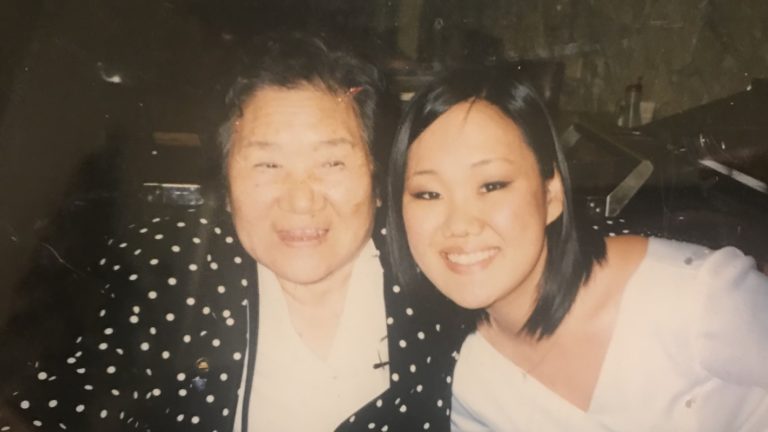
If you were to ask my grandmother if she were a feminist, I think she’d balk at the idea. She might say something about how women need to remain in the support of great men, how this is God’s intention for us.
Or, with a sigh, she’d say that it’s a woman’s lot in life to suffer. Then, she’d launch into the importance of education, of having one’s own money, of how she would have been a tiger with wings if she’d been allowed to finish school instead of being married off so early.
I think about this frequently: the way she embodied the definition of feminism, just not for herself. I think about how, in spite of my grandfather’s escapades amongst the intelligentsia; in spite of the lifelong respect he earned for being an activist for Korean independence during the Japanese occupation, it was my grandmother who ensured that he remained alive to fight another day, that his children remained alive to see their father’s contributions to his country, that their community knew who he was, what he was doing for their people.
And, in the unsung shadows, it was my grandmother who ushered her eight children through two wars, across closing borders under treacherous watch. It was my grandmother, who later crossed a whole ocean to catch and raise me: another iteration of woman, borne of my mother borne of her.

Maybe she knew, then, that our family line would be continued by her daughters, not her sons. Maybe this understanding came to her as a sign of her failure—no great men to stand behind. If she felt failure, she never ever expressed it to me. Instead, she called me, her last grandchild and a girl: her final masterpiece.
By the time she got to me, my grandma was in full espousal of two philosophies: women must be humble to men. And never let a man own you. Never rely on him for your life; you may never get it back.
The first philosophy she stated with a stiffened posture, serious and demurred, mostly to adults: women like her who had lived their whole lives hearing the same thing. I don’t know if this was an unspoken understanding of the dissonance between philosophy and experience. It was just the thing to say, that everybody already knew—
The second philosophy was for me, her future. She stated this belief when she wanted me to do my homework, clean my room, go chase a strange adventure. This second philosophy acknowledges the difficulty of a woman’s journey through this world; and, it acknowledges the insidious ways this world could make a woman beholden to a man. Maybe she felt that this insistence that I fortify myself against the world of men was what she could finally do to change things for posterity. If she herself could not have wings, this is how she’d ensure that her daughter’s daughter might fly.
When I find myself exhausted after another long slog through daily misogyny, bias, unchecked privilege that a woman of color must face in this world, I hear my grandmother’s simple fierce whisper—against dependency, for autonomy and authority, for my own damn money and freedom and choice.
Moreso, I hear her telling me that it will always be a struggle for a woman to achieve and maintain these freedoms; that a man may not have to fight at all. Beneath it all, she warns that along with wings comes a culture that wants to take them away.
The idea of a tiger with wings embodies the truth of it’s near impossibility, and therefore it’s preciousness. The reasons behind it’s obstinance are profound and steeped in generations of life in a world that insists otherwise.
This second philosophy, then, was meant to erase the first. It was a means to change the trajectory of the women in her line. This is how my grandmother gives me wings.
And, with wings, I am learning to differentiate between interdependence and self preservation, between relationship and reliance. I am finding ways to course correct and to promote the change and equity I want to see in the world.
At the end of the day, though, I come home, I feed the dog, I brush off my wings and hang them up for bed. It is in these moments that I talk to my grandmother. Here, in the quiet space between the world and the future, my grandmother reminds me of what it takes to be a woman, what it means to be brave, how words cannot convey the profundity of their meaning. In my dreams, my grandmother reminds me what it means to be a tiger with wings—to be disbelieved, mythologized, prized and hunted. She reminds me over and over of the power of being Woman—of being beautiful and terrifying— and how we must protect our right to be so, day after day.


